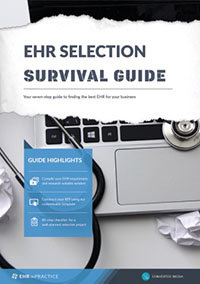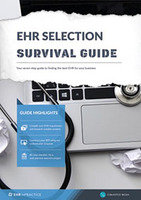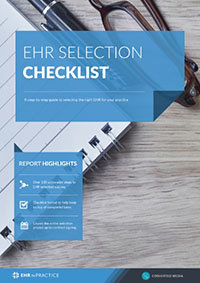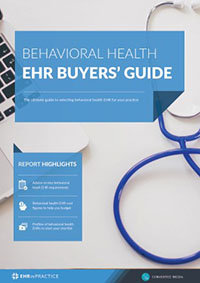How to select the best EHR for your medical billing needs
Medical practices selecting an EHR based on Meaningful Use requirements should also consider medical billing needs. With insurance companies moving toward electronic submissions, electronic appeals processes and electronic payments, ensuring your EHR meets your practice’s medical billing needs are paramount to maintaining a consistent revenue stream. Here are some considerations to help your practice select the best EHR for your medical billing needs.
Open, honest vendors
Selection begins with the EHR vendor itself. Some vendors are, unfortunately, less knowledgeable or honest than others. Look for those offering demos, training videos and transparent pricing information. Similarly, ask questions. If you are concerned about your billing processes, the vendor should have an answer, or several answers, to address your concern. Those that skirt the question likely do not know enough about the billing processes affected by EHR technology to serve your needs. Shop around until you find a vendor who understands and offers several options for billing.
Backup and data recovery
Outages happen. But an outage resulting in lost data that could have been billable hurts your practice’s bottom line. Don’t let that happen. Check with your vendor about backup and recovery options. For practices without a robust IT function, this point is especially important. If a practice is unsure about the outage preventions in place, they also may not understand the importance of daily backups. Always consult professionals in security and backup to make sure that your system doesn’t go down and there is a plan in place to get your data back if it does.
Logins
Meaningful Use requires an integrated EHR. What exactly does integrated mean? It means your billing software, medical records system and clearinghouse work together. If they work together, they should require one login per user, not one per part of the system. Ensure that everything works together - having your medical records communicate with your billing is imperative to an efficient, accurate billing process.
Recommended Reading: EHR Selection Survival Guide - Support finding the right EHR for your practice
Insurance requirements
Often overlooked as a resource, a practice’s commonly billed insurance carriers can help with the EHR selection process. Insurance carriers issue updates to participating medical providers that often include billing procedures. If you know your insurance carrier is transitioning to all-electronic claims receipt and processing, then it is important to choose compatible options for your practice. For instance, data structured HCFA templates draw information from the EHR onto an electronic claim form. Similarly, a system that verifies electronic receipt and rejection from your most important carriers can help you catch denials quickly.
Coding capabilities
Some practices do not have a sufficient number of coders. Even for practices with large coding teams, choosing a system based on its coding capabilities is important. If your practice is small, still in training, or looking for more efficient billing practices, automated coding offers the ability to find information in the EHR and apply CPTs and diagnosis codes as appropriate, building the data needed to create a HCFA.
Payment tracking
How does your practice want to track payment? With many insurance companies moving to EFT payments, tracking has become easier than ever. If you want to move away from ledgers and paper records, choose an EHR with payment tracking. Incoming payments from insurance companies can be loaded automatically upon receipt. If your practice still requires or wants a paper record, an EHR with reports and downloading options can give you both electronic tracking and paper tracking with the click of a button.
As with any technology implementation, there are dozens of considerations. Consult with your EHR vendor or a healthcare IT professional about what your practice needs. Planning for your practice’s future goals is just as important as meeting the needs of your current processes - and EHRs are here to stay.
Free white paper

EHR Selection Survival Guide
The comprehensive guide to selecting the best EHR system for your medical practice.

Featured white papers
Related articles
-

5 key stakeholders in your EHR selection
Learn about the individuals that, when consulted early and often, can make your EHR selection pro...
-

5 important areas of EHR training during implementation
Successful EHR implementation is not possible without crucial EHR training
-

Top oncology EHRs to kickstart your selection shortlist
Learn about some of the leading oncology EHR systems on the market including CureMD, ARIA Oncolog...



